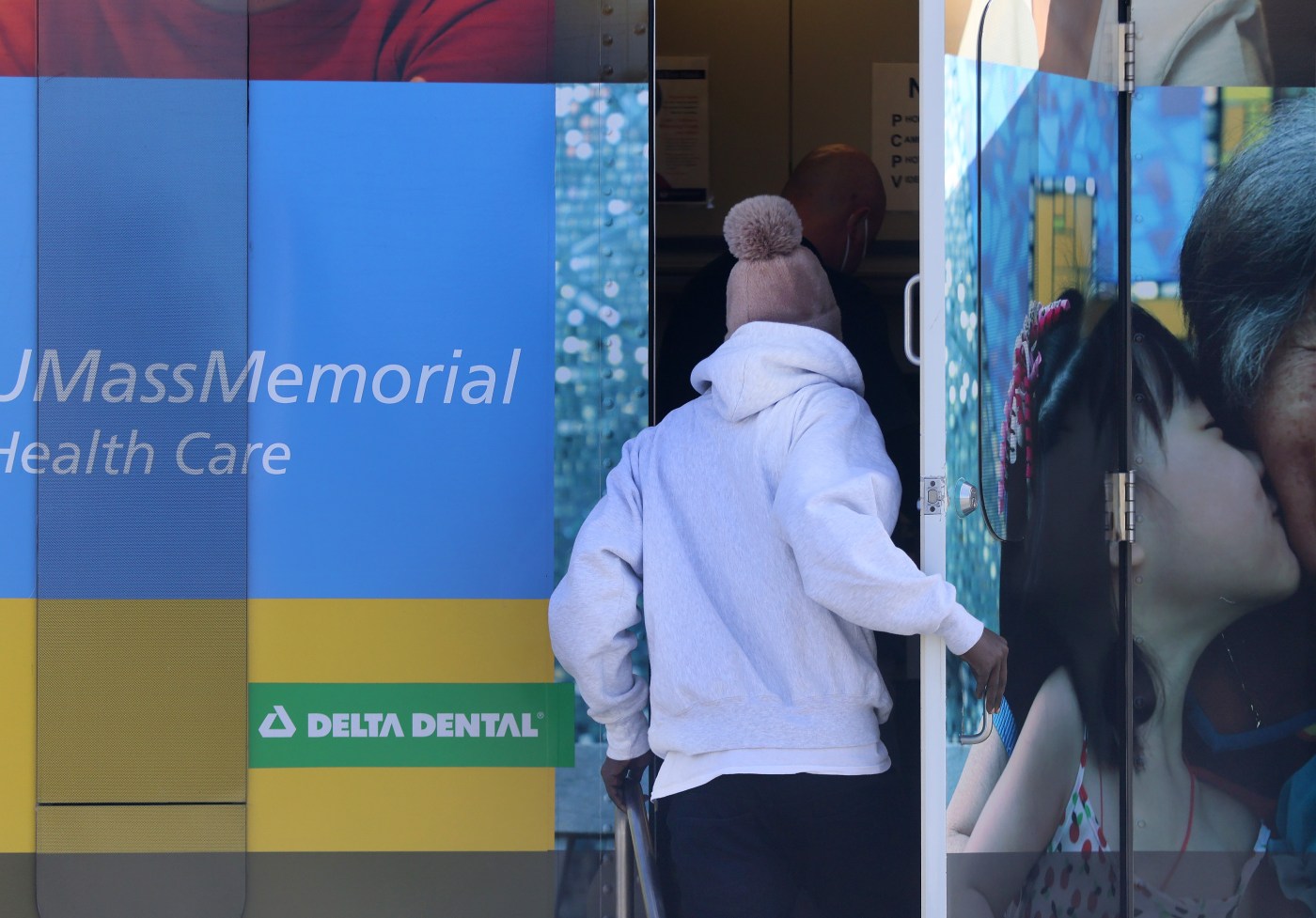
Mass. launches new $10.5M program to help 400 migrant families move out of state-run shelters
Massachusetts’ eight resettlement agencies inked $10.5 million worth of contracts with the state to move 400 migrant families out of state-run shelters and into stable housing by the end of the year, kicking off a program the Healey administration hopes will free up shelter space, according to state officials.
The program takes a well-documented resettlement strategy that has been used in the past at the federal level with humanitarian parolees from Afghanistan or Ukrainian and applies it to those in local emergency assistance shelters, which are at max capacity and struggling under a seemingly never-ending demand.
State officials tasked resettlement agencies with finding and placing migrants in apartments and then providing a year’s worth of case management “after they’re placed to make sure they have work and that they’re self-sufficient,” said Jeff Thielman, CEO of the International Institute of New England, an agency that largely works with newly-arrived Haitians.
“We’re not getting the same amount of money the Afghans got, or even the Ukrainians got,” he told the Herald. “What the state is saying is, ‘okay, well, the federal government is not doing what it did for Ukrainians and Afghans and we’re going to do the best we can with the resources we have so we’re going to let the resettlement agencies use their model and apply it to this new population,’” Thielman told the Herald.
The ability to quickly move families out of state-run shelters to free up space for other people has proven to be a thorn in the side of the Healey administration, which has pinned some of its hope on expediting work permits to help people transition into long-term housing.
But the new program presents an opportunity to let resettlement agencies, which have years of expertise helping migrants start new lives, take a shot at reducing demand on emergency shelter services.
Healey is funding the program with $8 million the Legislature already allocated to her administration in the fall. The money received through the 24-month contracts would help resettlement agencies staff up to meet the needs of the 400 families, according to Thielman.
Another $2.5 million — $2 million from the budget bill passed in the fall and $500,000 from the fiscal year 2024 budget — would help prevent refugees and special immigrant visa holders, people who come through the federal resettlement program, from becoming homeless by helping pay for rent, Thielman said.
Each of the eight resettlement agencies will each help a portion of the 400 families, the “majority” of which will be identified based on prior relationships with resettlement and legal services agencies, Thielman said.
Healey said resettlement agencies “have long played a critical role in helping families in Massachusetts get connected with housing, jobs and other critical resources.”
“We’re grateful to the Legislature for providing this funding to expand their efforts so that we can meet the needs of families in our emergency assistance shelter system. Our communities and our economy will be stronger because of this partnership,” she said in a statement.
There were more than 7,503 families in emergency shelters across Massachusetts as of Wednesday, according to state data.
Housing and Livable Communities Secretary Ed Augustus said newly-arrived migrants have often fled violence and instability in their home countries, and are seeking “safety and security in Massachusetts.”
“The partnership announced today between the state and resettlement agencies will support the unique needs of new arrivals, setting them up for long term success,” he said in a statement.
The demand on shelter services in Massachusetts has also become a major sticking point on Beacon Hill, where lawmakers are grappling with how to pay an expected $932 million bill this fiscal year and a $915 million spend next fiscal year.
House Democrats managed to pass legislation Wednesday afternoon that sets a nine-month time limit on migrant and local families’ stay in shelter. Those that have a job, are in a work training program, are pregnant, a veteran, or disabled are eligible for an additional three months.
Top House leaders argued the time limits were necessary because of declining state revenues and little help from Washington. But Republicans and some homeless advocates pushed back on the idea.
Thielman said a nine month time limit would not directly impact the new program the Healey administration launched Thursday because “our timeline is to get people out by the end of December.”
“Our goal is to try to get 400 people up by the end of December,” Thielman said. “We’re within the timeline that the Legislature has. We’ve had a running start. We’ve already hired some people here even before we got the state money. And we’ve actually identified a few families and we moved a few out already, our agency has.”


